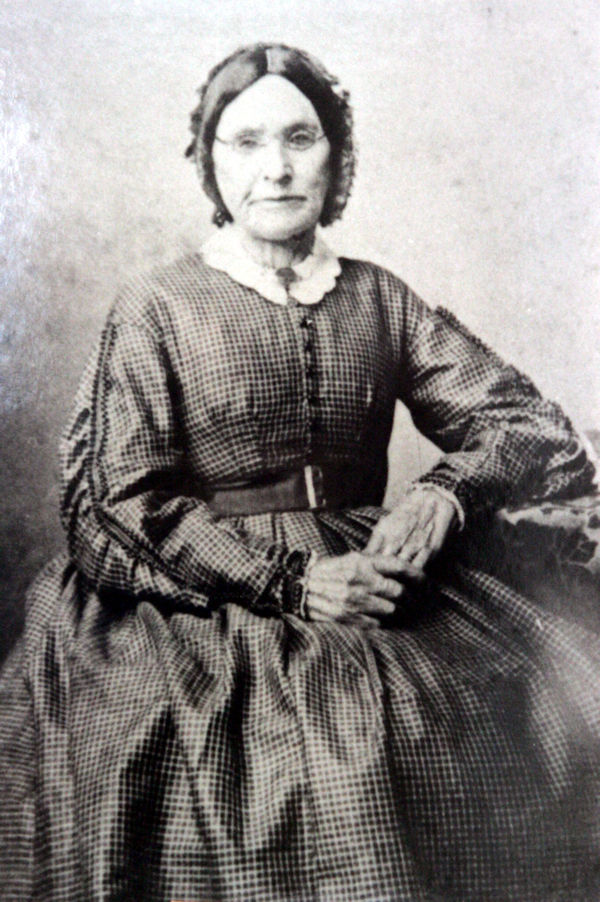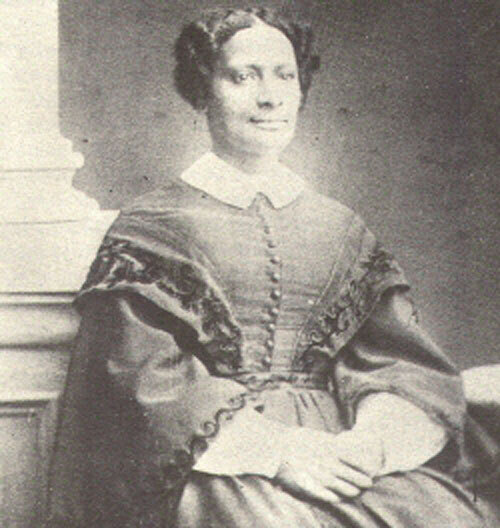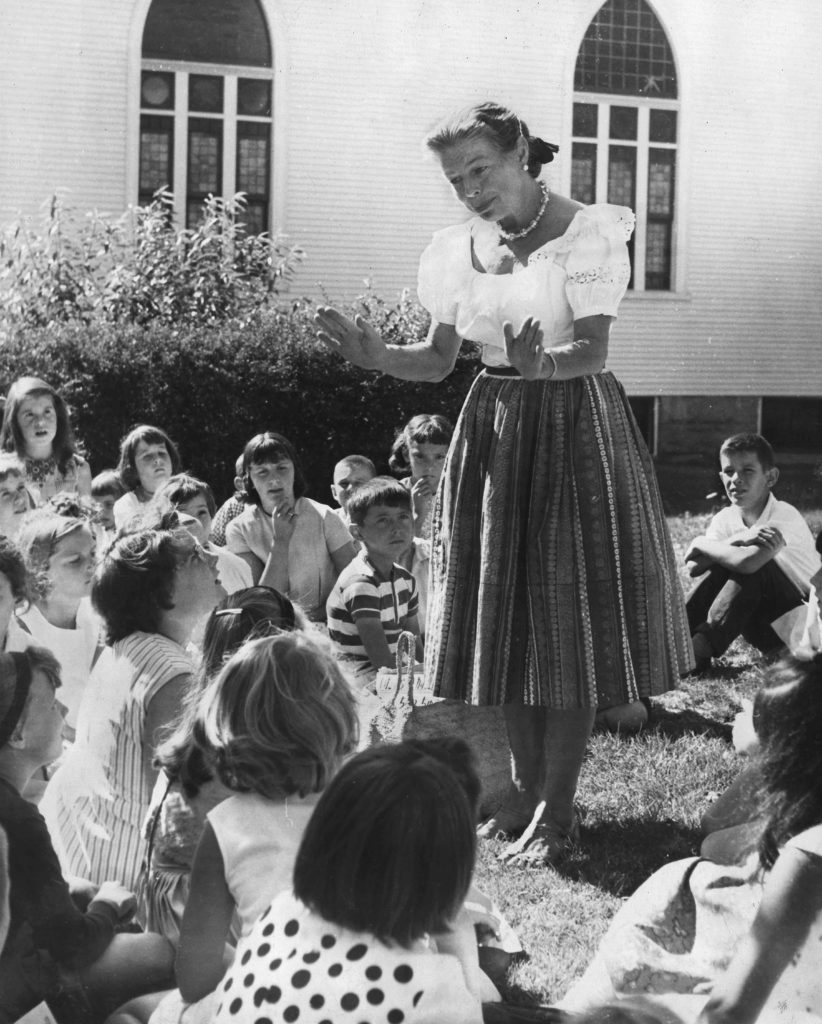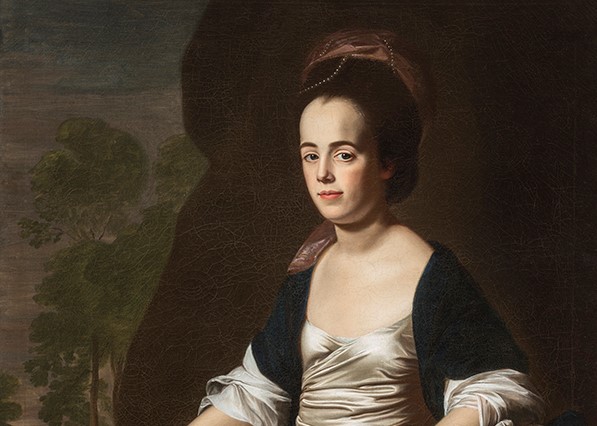March is Women’s History Month. And while we may all have heard of Rosa Parks, Marie Curie, and Eleanor Roosevelt, there are many other, lesser-celebrated women who have also had a profound impact on the world. Even just here on the North shore, women have been pioneering poets, stood up for the rights of other women, fought against slavery, and started business empires – many while still filling expected female roles like housekeeping and raising children.
So read on to be amazed and inspired by seven of the most interesting and influential women in the region’s history.
1. Anne Bradstreet
Poet, 1612-1672
Born in England, Anne Bradstreet was just 18 when she immigrated with her husband and parents to Salem, trading the comforts of aristocratic society for the harsh colonial life. In the years that followed, she bore and raised eight children, while moving from Salem to Cambridge, then to Ipswich, and finally to Andover. Yet she still found time to compose poetry that contemplated religion, womanhood, death, and immortality. In 1650, Bradstreet became the first Anglo-American poet to have work published when her book The Tenth Muse Lately Sprung Up in America was released in London to great acclaim. Even in the face of complaints that writing was not an appropriate pursuit for a woman, she remained bold and unapologetic: She refused to hide behind pseudonyms and continued writing until she died.
2. Judith Sargent Murray
Essayist, teacher, and pioneering feminist, 1751-1820
One of the country’s first feminists, Judith Sargent Murray was born into a prominent shipbuilding family in Gloucester. Her father declined to give his daughter a formal education, so Judith read everything she could get her hands on to educate herself. As she grew, she developed a belief that women should have the right to receive an education, to earn wages, and to manage their own financial affairs, all ideas that were decidedly out of step with her time. She ran a school for girls out of her Gloucester home and wrote for area newspapers, eventually publishing On the Equality of the Sexes, an essay arguing that women had the same innate abilities as men. When she released The Gleaner, a collection of her columns and essays, George Washington was among the first to buy the compilation.

3. Hannah Jumper
Temperance activist, 1781-1865
Hannah Jumper is known for her activities one night in 1856, when the 75-year-old Rockport resident helped lead a cadre of 200 women, many wielding hatchets, in a nightlong rampage against the illegal sale of liquor in her struggling town. For years, many of the women of Rockport had objected to their husbands’ drinking habits. Fishing provided a scant livelihood and, increasingly, their drinking was wasting valuable money and interfering with their work. Jumper, who never married, began holding secret meetings in her rooms to plan a drastic response to the problem. On the night of July 7, 1856, Jumper led the women into action, emptying and smashing casks of liquor wherever they were found. And their demonstration had a lasting effect: Rockport was legally a dry town until 2006.
4. Sarah Bagley
Labor activist, 1806-1889
In the 1840s, working conditions in Lowell’s textile mills began deteriorating, as owners expected the “mill girls,” as the were called, to do more dangerous, tedious work for less pay. Sarah Bagley and five other mill girls joined together to form the Lowell Labor Female Reform Association to demand safer workplaces and a 10-hour work day. Bagley became the face of the fight, advocating in writing and speeches against the working conditions created by the “beastly selfishness of man.” After more than a decade of attempts to sway public and legal opinion, the group finally won the right to a 10-hour work day. When she left the mills, Bagley went on to become one of the first female telegraph operators in the country.
5. Lydia Pinkham
Inventor and entrepreneur, 1819-1883
Lynn native Lydia Pinkham did not originally aspire to found a thriving business. She worked as a school teacher for a few years before marrying a young widow in 1843 and spending the next 30 years tending to her house and raising her family. Along the way, she developed a local reputation for brewing an herbal tonic that was said to help ease symptoms associate with menstruation and menopause. When the family hit financial trouble in the 1870s, Pinkham began marketing her remedy. And Lydia E. Pinkham’s Vegetable Compound was a wild success: Before Pinkham’s death in 1883, the company was grossing $300,000 in sales per year, worth roughly $8.3 million today. In fact, a variation on her formula is still sold under her name today.


6. Sarah Parker Remond
Abolitionist, 1826-1894
Sarah Parker Remond grew up in a family of ardent abolitionists; her parents often hide fugitives from slavery in their Salem home. And as a young, free Black girl, she quickly learned personal lessons about the depravities of racism. A she grew, she channeled this history and passion into her own anti-slavery work. In 1853, she was arrested for refusing to sit in the gallery at an opera performance in Boston. She began speaking for the abolitionist cause across the United States and eventually in England. When the Civil War ended, she remained in Europe, training first as a nurse and then as a doctor, living the rest of her life as a practicing physician in Italy.
7. Virginia Lee Burton Demetrios
Artist, writer, and educator, 1909-1968
Many know Virginia Lee Burton Demetrios as the author and illustrator of the classic children’s book Mike Mulligan and His Steam Shovel, but her career as an artist runs much deeper than her publishing work. In 1938, she founded the Folly Cove Designers, a guild-like group of printmakers – mostly women, many of whom had no previous design training before meeting Demetrios – who produced distinctive textiles featuring motifs drawn from the beauty of everyday life. By the 1940s, the group was selling their work in local retail stores and at their own outlet in Gloucester; Lord & Taylor displayed the designers’ work in the windows of its Fifth Avenue store in New York.

